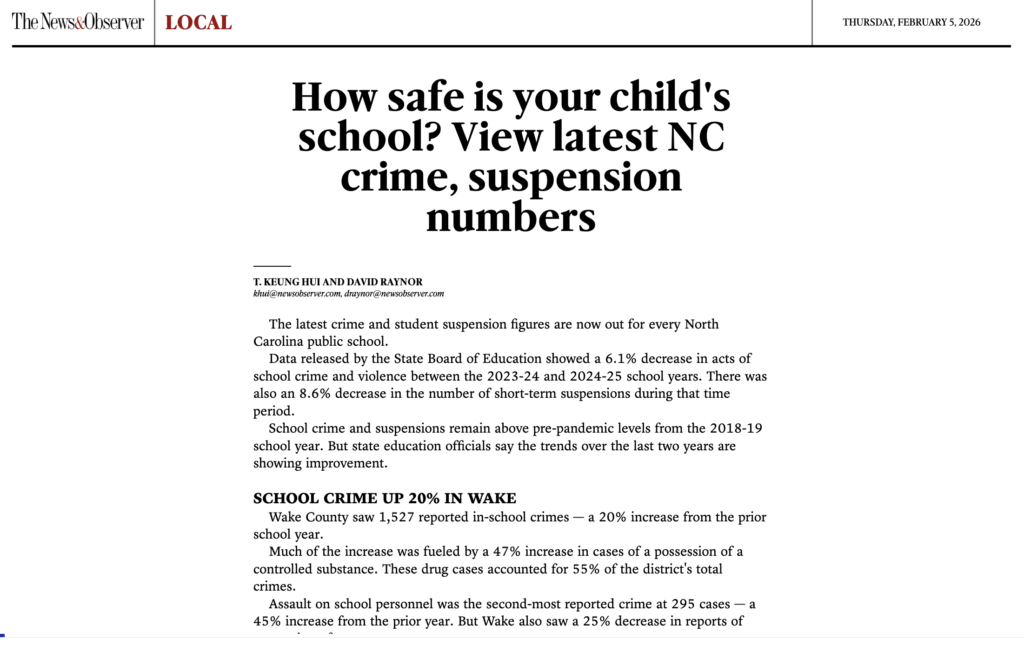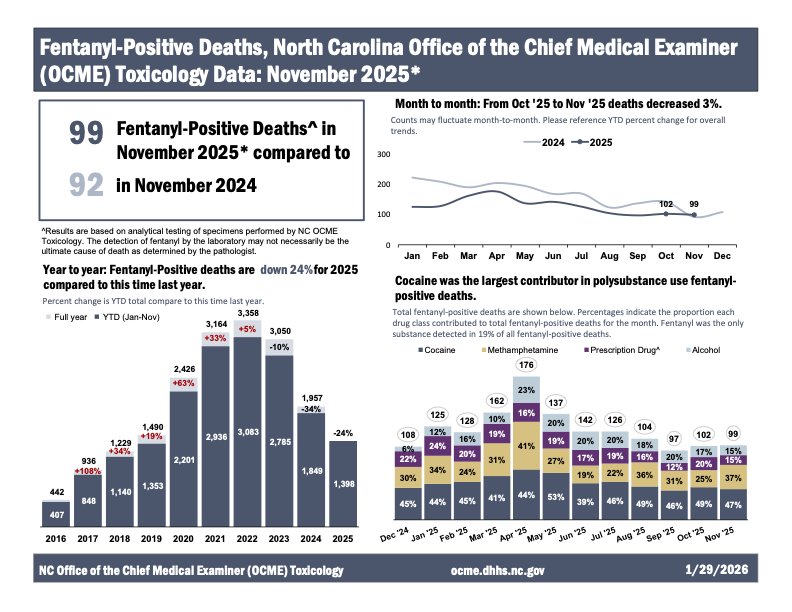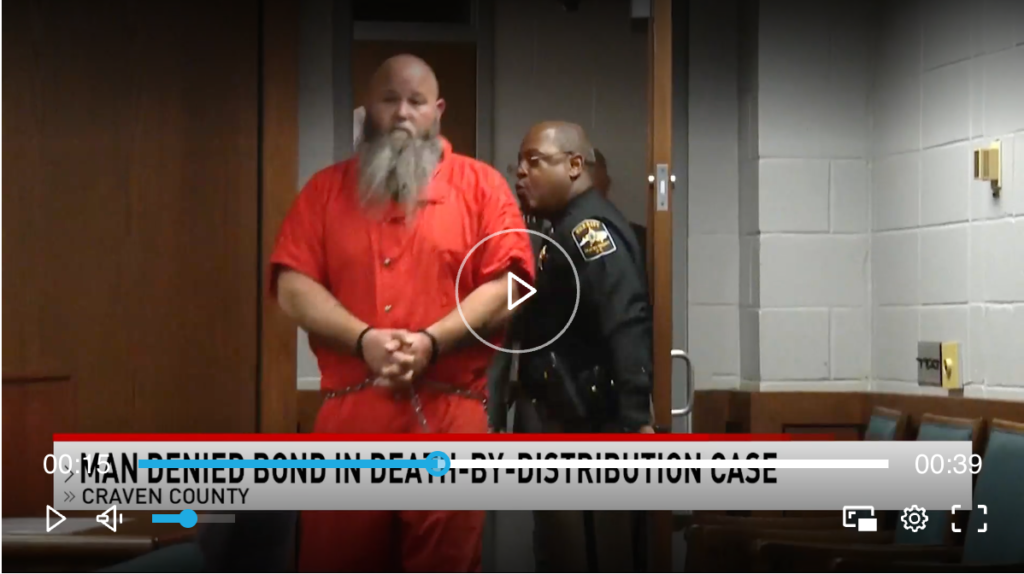An analysis of state health data shows that opioid overdose hospitalizations have decreased by more than 20% in the last year, marking two consecutive years of declining emergency department visits in North Carolina.
An analysis of state health data shows that opioid overdose hospitalizations have decreased by more than 20% in the last year, marking two consecutive years of declining emergency department visits in North Carolina.
“I’m excited to see the decreases continue,” says Tyler Yates, State Opioid Coordinator with DHHS’ Division of Mental Health, Developmental Disabilities, and Substance Use Services. “Not long after the action plan was put into play in 2017, we saw some decreases right away and then COVID happened. Overdose deaths skyrocketed.”





